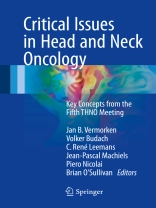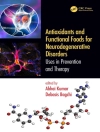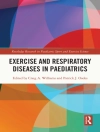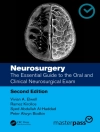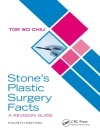This book offers a selection of the critical current issues and challenges in head and neck cancer. It covers most key concepts of the subject, from diagnostic challenges to multidisciplinary decision-making aspects in head and neck oncology. Starting with the Make Sense Campaign and examining its impact on clinical practice, readers also gain insight into current and novel therapeutic approaches, including radiotherapy, cytotoxic chemotherapy, targeted therapy, and immunotherapy, as well as the importance of adequate supportive care. Surgical interventions such as endoscopic surgery, salvage surgery, dentistry and implants are also discussed. Moreover, the changing respective roles of the involved caregivers are highlighted and extensively discussed. The chapters are based on the latest data presented at the 5th Trends in Head and Neck Oncology Conference and reflect the most up-to-date information in the field.
Taking into account the ample currenttreatment options for patients with head and neck cancer and discussing side effects, survivorship issues and treatment in the elderly, this book provides and up-to-date coverage of all the critical topics in the field. Highlighting the increasing importance of decision-making in recurrent and metastatic head and neck cancer as well as quality of life and end of life issues, this reference book also emphasizes a multidisciplinary approach that plays such an important role in the outcome for this disease.
Edited by a team of world leaders in Head and Neck Cancer this volume serves as an easy reference to the head and neck oncology practitioner and provides an up-to-date overview for specialists the field.
Tabla de materias
Section I : The Make Sense Campaign.- The Make Sense Campaign.- Section II: Head and Neck Cancer: a changing disease.- New epidemiologic aspects.- Biology of head and neck cancer.- Section III: Diagnostic challenges .- The changing role of the pathologist.- Molecular imaging in head and neck cancer.- Multidisciplinary Decision Making & Head and Neck Tumor Boards.- Clinical decision making: how and when. Section V: Locoregionally Advanced Head and Neck Cancer .- Pros and cons of endoscopic surgery.- Oncologic dentistry and implants.- Primary radiotherapy & concurrent chemoradiotherapy.- Treatment of viral-associated head and neck cancer.- Patient and treatment factors in concurrent chemoradiotherapy.- Section VI: Recurrent/Metastatic Head and Neck cancer: How and When to Treat. – The surgical approach.- When and how to irradiate.- Cytotoxic chemotherapy and targeted therapy.- Immunotherapeutic approaches.- Treatment in the elderly.- Supportive care.- Section VII.- Quality of life issues.- Palliative care in the palliative disease setting.- Community palliative care and dying at home.
Sobre el autor
Jan B. Vermorken graduated in 1970 from the University of Amsterdam, the Netherlands, did his internal medicine training at the University Hospital, Vrije Universiteit in Amsterdam, and became a board-certified specialist in internal medicine in 1975. Since that time he has worked in the field of Medical Oncology, initially at the Department of Internal Medicine, later at the Department of Medical Oncology of the same institute, and was officially registered as a Medical Oncologist in the Netherlands in 1992. He received his Ph D in Medical Sciences in 1986 from the Vrije Universiteit in Amsterdam. From May 1997 until October 1, 2009, he was Professor of Oncology at the University of Antwerp (UA), and head of the Department of Medical Oncology at the University Hospital Antwerp (UZA), in Edegem, Belgium. After his retirement he remains connected to both University (emeritus Professor) and University Hospital. His main fields of interest are head and neck oncology and gynecologic oncology. He chaired both the Gynecologic Cancer Group (1983-1989) and the Head and Neck Cancer Group (2006-2009) of the European Organization for the Research and Treatment of Cancer (EORTC), was founding chair of the Gynecologic Cancer Inter Group (1997-2003), and stimulated the set-up of the Head and Neck Cancer International Group (HNCIG) in 2015. He devotes a large part of this time to teaching, professional training, and continuing medical education and is author or co-author of more than 650 publications.
Jean-Pascal Machiels MD, Ph D, is head of department of medical oncology and a member of the directory board of the oncology center, Cliniques Universitaires Saint-Luc, Université Catholique de Louvain, Brussels Belgium. He trained at Université Catholique de Louvain, Brussels, Belgium, where he gained his MD in 1993 and his Ph D in 2001 and at Johns Hopkins School of Medicine, Baltimore USA, where he was a Fellow in Medical Oncology from 1998 until 2000, . His main interests include Head and Neck cancer, and phase 1 clinical trials. He has published more than one hundred papers reporting on clinical trials and translational research.
Volker Budach as Head of the Dept. for Radiation Oncology at the Charité University Medicine Berlin is a highly distinguished and internationally well-known expert in head and neck cancer. He actively organised and supported diverse interdisciplinary national and international meetings with the topic of head and neck cancer and is also member of the European Head and Neck Society. He has a long standing record as PI for three German multicentric trials comprising more than 800 patients. He is founding and currently board member of the German Head and Neck Clinical Trialists’ Collaborative Group.
Professor C. René Leemans, MD, Ph D is chair of the Department of Otolaryngology Head and Neck Surgery at the VU University Medical Center, Amsterdam since 2002. His special interests include head and neck oncology, reconstructive and microvascular surgery, and basic research. René Leemans has made a sustained and internationally recognized contribution to cancer care and research in the field of head and neck oncology over the past decades. He has published over 350 papers in high profile journals and is regularly invited to speak at international conferences and tutor at courses. He also serves on the editorial board of nine peer-reviewed journals.
Professor O’Sullivan is the Bartley-Smith/Wharton Chair in Radiation Oncology and leader of the Head and Neck Program at the Princess Margaret Cancer Centre, University of Toronto. He is the Co-chair of the Head and Neck Steering committee of the US National Cancer Institute and Editor-in-Chief of the UICC Manual of Clinical Oncology. Professor O’Sullivan has received multiple awards and honors for his work, has lectured extensively throughout the world, and has published over 330 peer-review papers.
